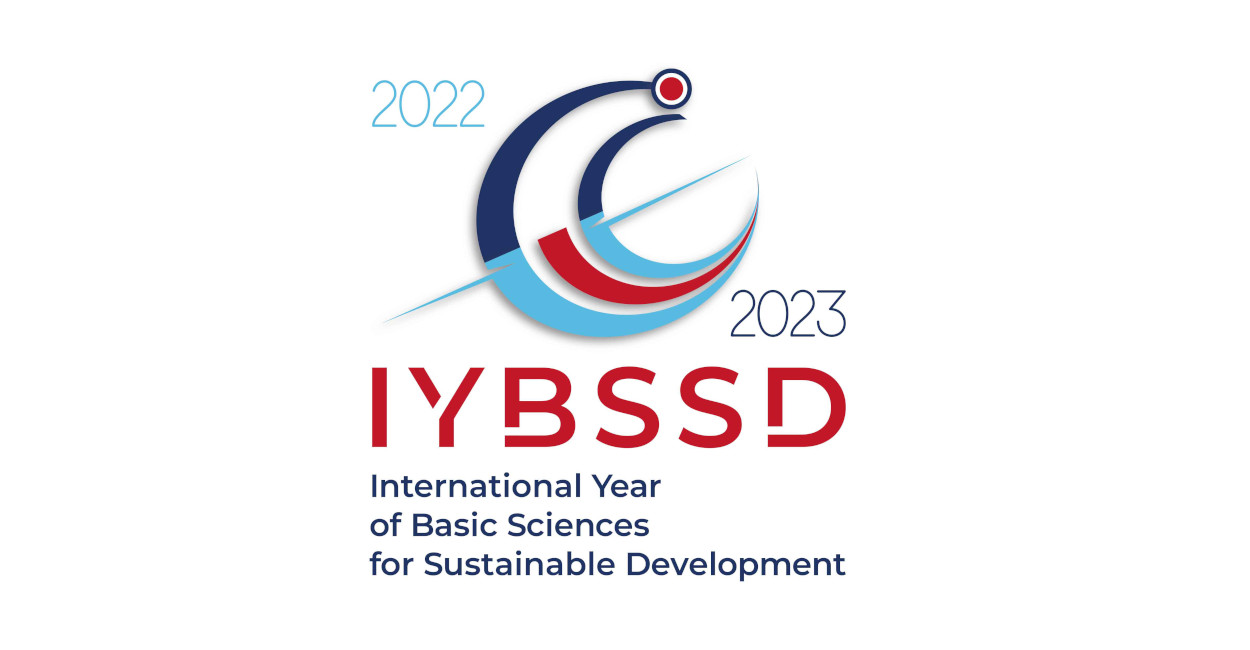
The special event on 24 May 2023, convened under the auspices of the President of the General Assembly, to celebrate The International Year of Basic Sciences for Sustainable Development (IYBSSD) at the UNHQ will facilitate an exchange between experts and delegates on how basic sciences, together with other sciences and technology, can help building a new approach for the solution of global challenges, centered on sciences for sustainability.
Livestream and video recording will be available here
The event will consist of a panel discussion, followed by an interactive segment.
Key questions for the event include:
- The possible contribution of basic sciences to crisis management and mitigate/eliminate the impact of extreme events on society.
- How basic sciences can help the transformation towards sustainability, with a focus on how science can enhance its contribution to the definition of global strategies and their validation.
- What is the practical applicability of basic sciences and of its collaborative and operational models for deliberations in the UN and policy development?
- How can basic sciences function as catalysts of multilateral trust and cooperation, in collaboration with other sciences, humanities, and technology?
The interactive discussion is an opportunity for Member States, Observers, the UN System and ECOSOC-accredited NGOs to exchange with the scientific community.
Sciences for Sustainability
The concept of sciences for sustainability is not univocally defined. However, many of the reflections triggered by the events organized so far in the context of IYBSSD indicate a few main lines to make basic sciences a powerful tool for the whole society for a sustainable future.
Basic sciences may offer concrete inputs to the elaboration, evaluation, and validation of strategies and actions that are aimed at catalyzing sustainable development. However, the complexity of the global problems to tackle call for a collective and interdisciplinary approach that must include, together with basic sciences and technology, all other sciences (social sciences, formal sciences, political sciences, humanities, among others) representing various communities of knowledge.
The basic science communities are committed to promote cooperation with the other scientific communities and with the technology world to help UN Members and other policy makers to prioritize policy development, action plans, finance and investment and the delivery of services to stakeholders, especially the most vulnerable and marginalized.
Science communication and the dialogue science-policymaking are essential elements for policy makers to be able to benefit from and synergize with the scientific communities. Basic sciences have a role in this process, as they are the foundation of almost all applied sciences and can therefore contribute greatly to a better understanding of scientific opportunities and to develop solutions in support of sustainable development.
In addition to celebrate the IYBSSD at the very place where it was proclaimed, this event is meant to provide an overview on the present status of sciences for sustainability which, although progressing rapidly, is characterized by scientific, thematic, geographical, and organizational fragmentation that must be overcome. It may also offer the opportunity to initiate a reflection on the future of sciences for sustainability and on a possible long-term follow-up of IYBSSD, which would associate all sciences into a global effort based for sustainability.
Science has been a catalyst of dialogue throughout times of crisis and uncertainty. Scientific cooperation did not stop at the iron curtain in Europe in the past. The successful lessons yield valuable insights into how cooperation on science can enhance dialogue and effectiveness in times of crisis and contribute to mutual understanding and trust. The currencies of multilateral systems like the UN, and more generally of intergovernmental organizations.
Programme Outline
Opening statement
H.E. Mr. Csaba Kőrösi, President of the 77th session of the UN General Assembly
Panel discussion “Role of sciences in crisis management and sustainability transformation”
Moderator
Dr. Maurizio Bona, Former Senior Adviser at CERN (European Organization for Nuclear Research) and Vice-Chair of IYBSSD
Panelists
Prof. Karen Hallberg, Professor at Balseiro Institute, and Principal Researcher at Bariloche Atomic Center, Argentina
Prof. Rolf Heuer, Former Director-General of CERN, and President of the SESAME Council
Dr. Mamphela Ramphele, Co-President The Club of Rome, Co-founder of ReimagineSA, Chair Desmond Tutu IP Trust.
Closing remarks
Dr. Michel Spiro, President of International Union of Pure and Applied Physics (IUPAP), and Chair of IYBSSD


